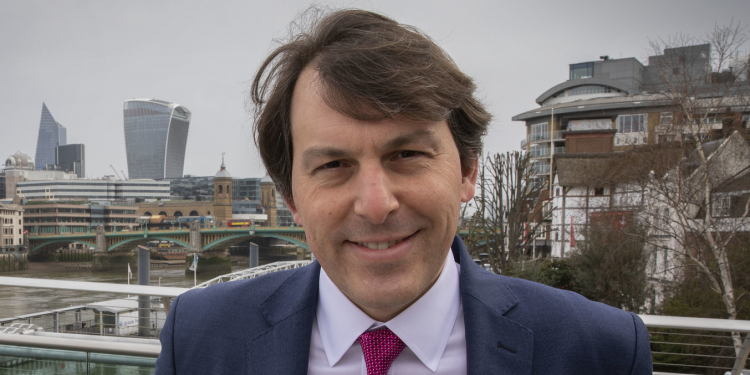A senior Treasury minister has told the finance industry he wants UK regulators to be proactive when considering online risks, but did not discuss why the government is ignoring calls to ban or regulate online advertising for financial scams.
Economic Secretary to the Treasury John Glen spent almost his entire 3,000-word speech at the UK Finance annual dinner this week addressing regulation of the sector.
However, he failed to mention the issue which has brought near-universal desire from the industry for government action, including several pleas from the Financial Conduct Authority (FCA) itself.
Glen (pictured) also said it was important the industry learned “the right lessons for the future” and there needed to be “a continuous process of reflection and refinement”.
He said: “There will always, of course, be times when our regulatory system could have performed better. What’s important, looking forward, is that we increase transparency and learn the right lessons for the future.
“I believe that our regulators must also remain on the front foot in the face of rapid innovation, and a digital age.”
Glen also said he supported the change programme brought in by FCA CEO Nikhil Rathi and the ambition to transform the FCA into a more nimble and innovative regulator.
The FCA has called several times for government to include financial scams promoted by paid-for adverts in its Online Safety Bill – to make online platforms responsible for the financial adverts they carry, or give the FCA more powers to tackle the issue.
This has been echoed across the financial services industry, including by insurer Aviva which found the vast majority of people (87%) believe government should legislate to ensure search engines and social media sites do not mislead consumers or promote financial scams.
But the Conservative government has so far resisted the calls to do so.
Get comfortable with entrepreneur mindset
Elsewhere in the speech, Glen agreed regulators must be free to take fast action to tackle bad apples and get them out of the market.
But he urged the UK’s financial regulators to work collaboratively with the industry “to understand their often new business models, and to foster innovation and technological transformation safely and responsibly.”
He continued: “There’s a case, I believe, for establishing a more interactive, rolling dialogue between the regulators and industry.
“Where we think of regulation not as just simply policing the system – that is very important – but enabling the system… a better informed, more nimble regulation which, in turn, reduces misunderstanding and minimises time lags.
“That would be better for everyone – not least because it would help identify conduct risks before the red lights start flashing… and help us deal with them proactively before they become a problem.”
He said this meant getting inside and being comfortable with the mindset of the entrepreneur, and vice versa.
“Because when we understand each other – and collaborate – we achieve much more,” he added.






